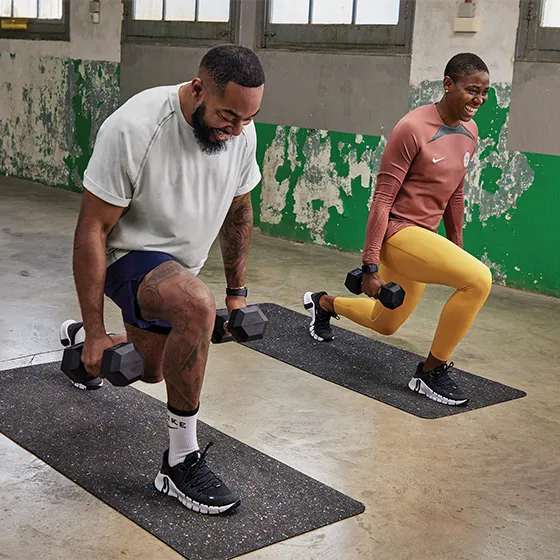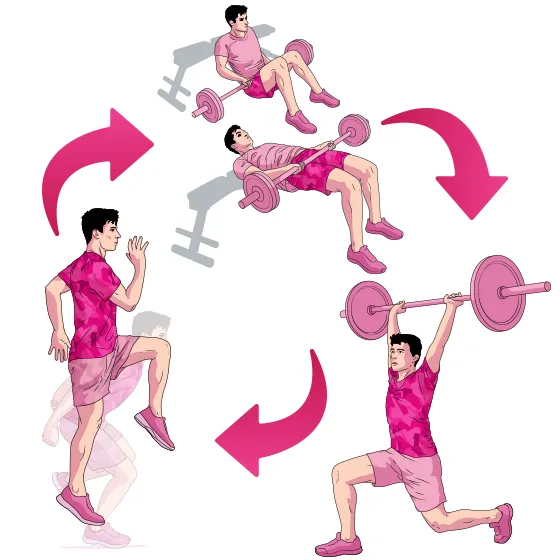Plenty of runners are wary of strength training. Some fear that it could mean bulking and affect their ability to run fast or over long distances. But in my journey as a runner and coach, I’ve found that strength training is essential for performance and injury prevention. There’s plenty of science-backed research to show that heavier resistance training – such as deadlifts, squats and compound lifts – helps endurance runners from a performance perspective. At the other end of the spectrum, plyometric training – explosive moves where you react with the ground or perform moves like box jumps – boosts running performance and economy. I encourage clients to move away from the more traditional type of strength training using a low weight but performing a lot of reps, in favour of plyometric training and heavier lifts instead.
Heavy lifts for lighter feet
It’s a common myth that strength training may slow a runner down. In reality something called interference theory ensures that the endurance training you’re doing mitigates the hypertrophy (bulking up) eff ects of strength training. Also, you don’t need to do masses of volume. Just doing three sets of six-to-eight reps is enough to build strength without causing big muscle tissue changes. People associate heavy weight with body-builders. But if you take a look at the Instagram feeds of elite runners they’re all doing powerful strength training.
Weighting time
Even though we’re limited by how much time we have, you can benefit from just doing a couple of 20-30 minute strength training sessions a week – and doing only four max or five different exercises each time. You can strength train and run on the same day – maybe combine a morning run with an evening strength workout, and then have a recovery day afterwards.
However, while there’s loads of research linking strength work with running benefits – the jury is still out on whether strength training will prevent injury. Studies, including a review of all research up until 2023, show that there isn’t a strong correlation between strength training and a low risk or incidence of running injury. However, back in May 2024, a new study suggested that doing hip and core strength exercises was linked to a 40-50 per cent reduction of injury rates. So, it’s possible strength training will slash your chances of getting injured – but there’s not enough evidence at the moment for physios to say that for sure.
When it comes to improving your running performance though – strength training is the right way to go.




















